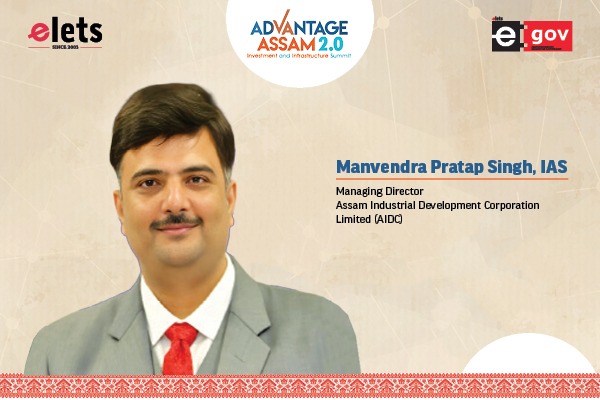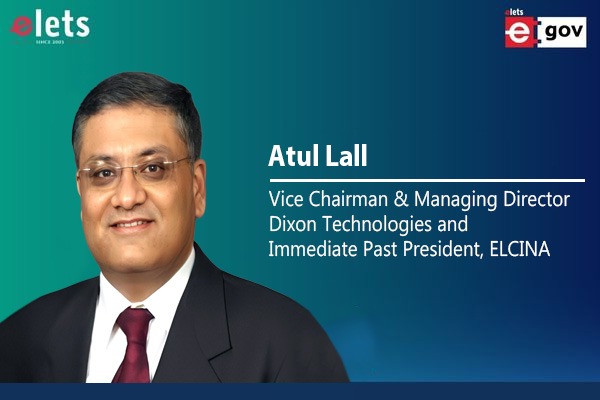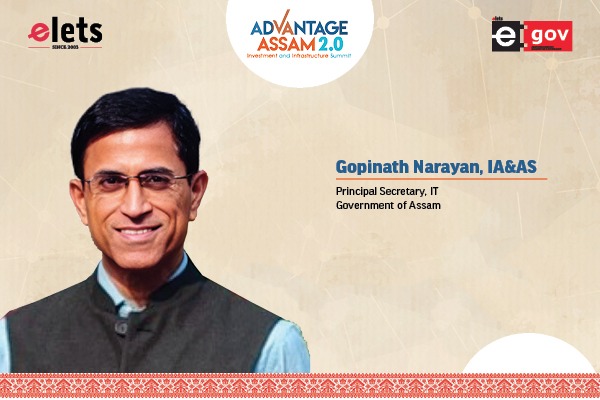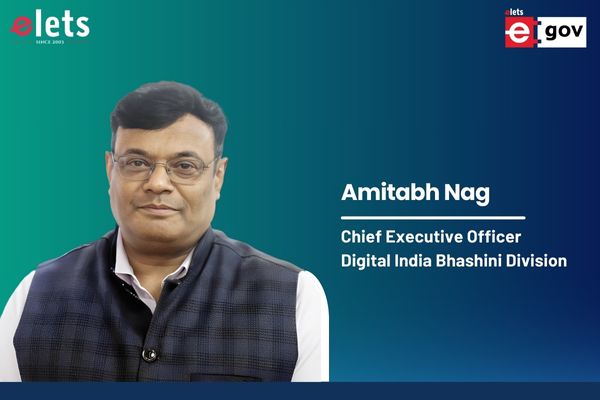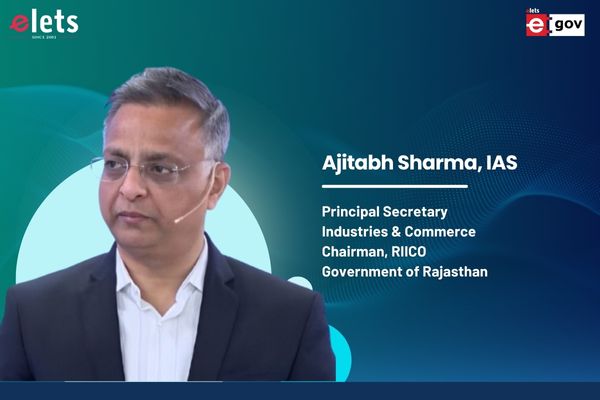
Ajitabh Sharma, IAS, Principal Secretary, Industries & Commerce and Chairman, RIICO, Government of Rajasthan, in an exclusive interaction with Nijhum Rudra of Elets News Network (ENN), shares his vision for smart governance, the state’s approach to stakeholder-centric digital transformation, and key initiatives supporting MSMEs in their digital journey. From embedding accountability into IT-enabled systems to enabling seamless digital adoption for small businesses, Sharma highlights how Rajasthan is paving the way for inclusive and innovative governance.
Edited excerpts:
What is your vision for smart governance in Rajasthan, particularly in terms of stakeholder involvement?
Smart governance in Rajasthan goes beyond just digitising processes or service delivery. It’s about embedding the core principles of governance, which involve actively engaging stakeholders, incorporating their inputs into collective decision-making, implementing those decisions effectively, and ensuring accountability within government institutions. A continuous feedback loop is critical to refining decision-making and driving improvements. Our focus is on creating systems that prioritise stakeholders—citizens—and ensure their voices shape governance outcomes.

How does Rajasthan ensure that IT-enabled government processes align with the principles of good governance?
When we design IT-enabled systems or transform business processes, we keep the fundamentals of governance in mind: stakeholder engagement, accountability, and iterative improvement. Digitisation and digitalisation are tools to enhance these principles, not just to streamline processes. By focusing on transparency and accountability, we ensure that technology serves the public, making service delivery more efficient while maintaining a feedback mechanism to hold institutions accountable and improve decision-making.

What role do events like the Elets SmartGov Summit play in advancing Rajasthan’s governance goals?
Events like Elets SmartGov Summit are vital for fostering collaboration among senior government officers, business leaders, and domain experts. The focus on HR and IT-enabled government processes is particularly welcome, as it brings together diverse perspectives to discuss and innovate. Such platforms encourage knowledge-sharing and inspire actionable strategies, and I encourage Elets to continue organising these impactful events to drive smart governance forward.
What are the key challenges MSMEs in Rajasthan face in adopting digital transformation?
MSMEs face significant challenges in digital transformation, similar to the green transition. The adoption of new technologies disrupts their value chains, especially when large companies in their supply chains enforce global or domestic regulations, imposing additional costs. These firms often require MSMEs to integrate into common digital platforms, which further increases costs and reduces competitiveness. These barriers make it difficult for MSMEs to adapt seamlessly to digital requirements.
How is the Rajasthan government supporting MSMEs in overcoming digital transformation challenges?
We’ve developed a robust policy framework to support MSMEs, including our MSME policy, export policy, cluster development policy, and the One District One Product (ODOP) initiative. These policies provide fiscal and non-fiscal incentives to ease the financial burden of digital adoption. For instance, we share costs for small businesses transitioning to e-commerce platforms like Amazon or Flipkart, covering initial expenses to make the shift from physical to digital commerce smoother and more competitive.
Also Read: Digital India Bhashini Revolutionising Language Accessibility with AI-Powered Solutions
Can you elaborate on specific measures taken to make digital transformation seamless for MSMEs in Rajasthan?
To ensure seamless digital transformation, we’ve implemented targeted measures like cost-sharing for new e-commerce entrants, where the government bears part of the initial expenses for MSMEs joining platforms like eBay or Flipkart. Additionally, our policies provide incentives to help MSMEs meet the digital requirements of larger buyers. By fostering a supportive ecosystem through fiscal incentives and infrastructure development, we aim to make MSMEs more resilient and competitive in a rapidly digitising global market.
Be a part of Elets Collaborative Initiatives. Join Us for Upcoming Events and explore business opportunities. Like us on Facebook , connect with us on LinkedIn and follow us on Twitter, Instagram.
"Exciting news! Elets technomedia is now on WhatsApp Channels Subscribe today by clicking the link and stay updated with the latest insights!" Click here!




